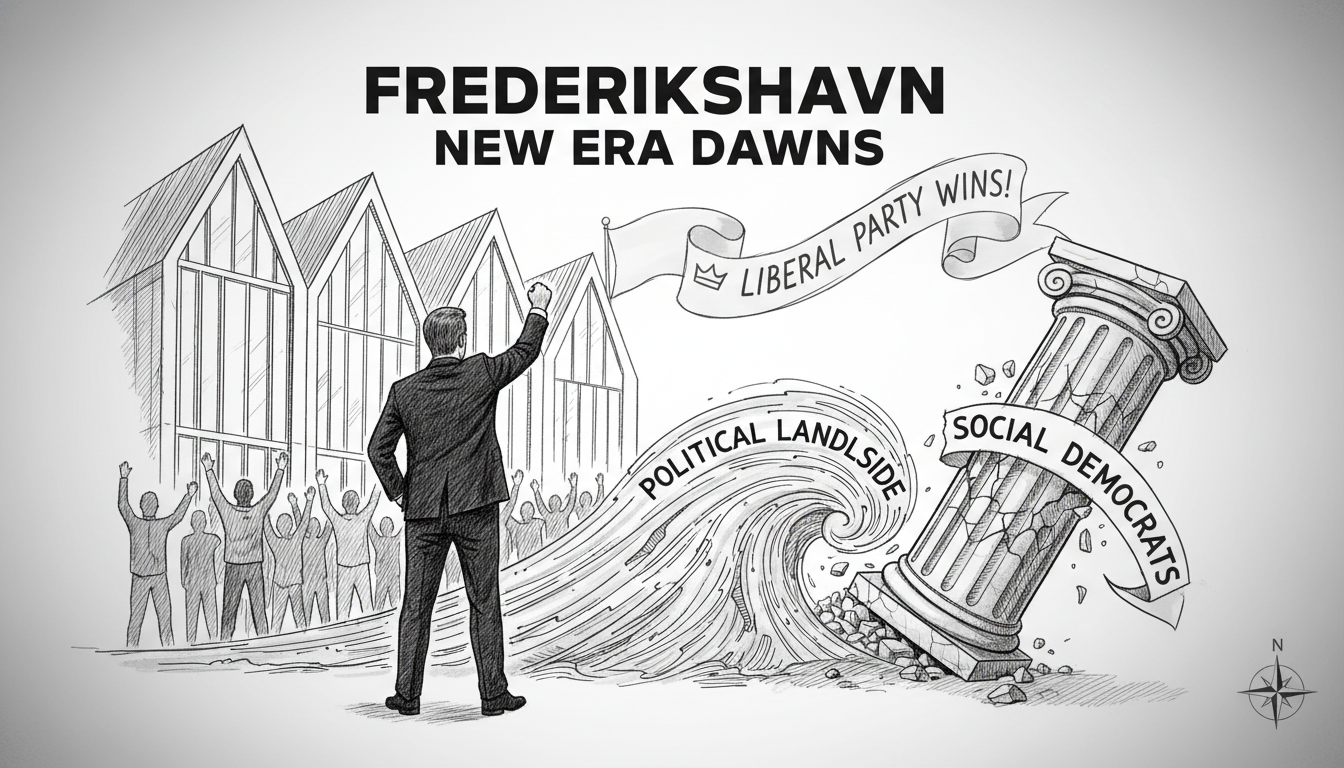Frederikshavn witnessed a dramatic political shift as votes were fully counted late Sunday night. The Liberal Party's Jon Andersen appears headed for the mayor's office after his party surged from six to nine council seats. This represents a stunning reversal in the Danish municipality's political landscape.
The Social Democrats suffered devastating losses, dropping from eighteen to just eight council mandates. Their mayoral candidate Anders Brandt Sørensen experienced what local observers called a terrible election night. The center-left bloc now faces significant rebuilding in this northern Jutland community.
Meanwhile, the blue bloc parties collectively secured sixteen council seats. This coalition includes the Conservatives, Danish Democrats, Danish People's Party, and Liberal Alliance. Their combined strength creates an absolute majority in the municipal council.
The Socialist People's Party also celebrated substantial gains under Christina Lykke's leadership. SF jumped from one to five council seats, marking one of the night's strongest performances despite the overall rightward shift.
What does this political earthquake mean for Frederikshavn's future? The municipality now joins a growing trend of Danish communities shifting toward center-right governance. This pattern has emerged across several regional elections in recent months.
Danish municipal elections typically reflect national political currents while addressing local concerns. Frederikshavn's port city economy and regional development projects likely influenced voter decisions. The Liberal Party's focus on business development and municipal efficiency appears to have resonated with voters.
The formal council constitution process must still occur before Andersen officially assumes the mayor's position. However, the mathematical reality suggests a smooth transition to Liberal Party leadership. This outcome represents a significant personal achievement for the civil engineer from nearby Sæby.
International observers watching Danish politics should note this result's implications. Municipal elections in Denmark often preview national voting trends. The Social Democrats' dramatic decline in a traditional stronghold suggests potential challenges for the governing party in upcoming national elections.
Frederikshavn's political transformation demonstrates how local issues and national trends interact in Danish democracy. The municipality's strategic location near important shipping routes and wind energy projects makes its political direction particularly noteworthy for regional development.

